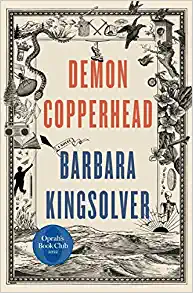Demon Copperhead author and Kentucky native Barbara Kingsolver talks about the opioid epidemic and Appalachia’s difficulty with it

Barbara Kingsolver says she intended her Pulitzer Prize-winning novel Demon Copperhead to be her “great Appalachian novel” that told the story of how the opioid epidemic has ravaged the region, and its impact on children.
 |
| Winner of the 2023 Pulitzer for fiction |
Kingsolver also talked about the stigma associated with addiction and how people have been brainwashed to think it is a moral failing, instead of the brain disease that it is.
“We have been trained, culturally trained, to think of addiction in this way, as a personal failing that needs to be punished. Incarceration does not cure addiction any more than it cures cancer. Addiction is a disease,” she said. “It’s impossible to describe how terrible this disease is, not just the dope sickness of it but the fact that your entire life has to become just a really difficult, hard work in process of, every morning, getting your means, getting your fix, getting through another day. And nobody wants to live like that.”
Kingsolver told Klein that she hopes her novel will help people have more compassion and think of people with addiction as having a disease and to get rid of the idea that you don’t treat a person with addiction until they “hit bottom.”
“That’s how we treat the disease of addiction. And it’s incredibly inhumane. And effective treatment will only happen after we switch over from putting this in the hands of the police and the prisons to medical workers who can meet addicted people where they live and offer them the first steps of clean needles and fentanyl test strips so that they won’t die in the weeks that it will take for them logistically, physically, emotionally, to get to the beginnings of treatment,” she said.
And to those who maintain a moral objection to such “harm reduction” programs, she said, “It’s as if people feel that addicted people deserve to die. Imagine if we looked at any other disease that way.”